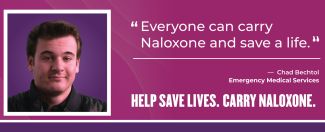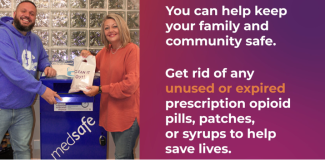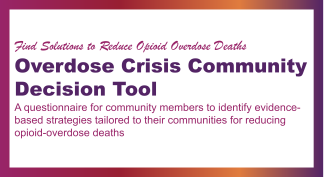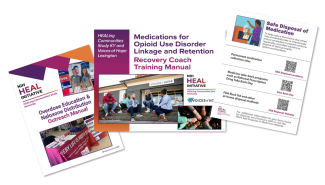Haga clic aquí para ver esta página web en español.
The HEALing Communities Study Team invites you to assist in reducing opioid overdose deaths through the Helping to End Addiction Long-term (HEAL) initiative. In the largest research grant ever received by the University of Kentucky, researchers from four states, Kentucky, Massachusetts, New York and Ohio developed information and resources to guide community leaders, policy makers, health care workers, family members and people who use drugs to find solutions to reduce opioid overdose deaths. The study translated research results into actionable steps in 67 communities across the four states. This site provides manuals, resources, flyers, educational materials, sample billboards, ads and brochures developed from this study. We hope you will explore and use these materials to address the opioid overdose epidemic in your community.
This site contains information to help:
- Reverse opioid overdoses
- Educate you and your community on opioid use disorder (OUD) and the FDA-approved treatments
- Communicate in ways that will reduce the shame surrounding OUD, naloxone and medications used to treat OUD
- Provide practical substance use prevention ideas
- Advocate in your own community to reduce opioid overdose deaths
Thank you for visiting the HEALing Communities Study (HCS) website, where we hope you find the information you seek.
If you would like to ask the University of Kentucky team questions or provide suggestions for improvement of this site, please contact us at hcscommunity@uky.edu.








